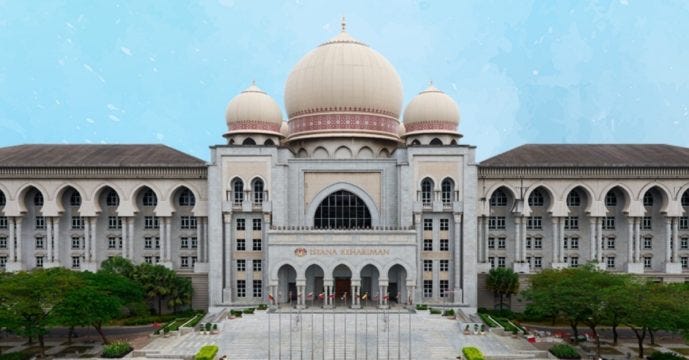
Murray Hunter
Federal Court’s ruling in Loh Siew Hong case strengthens landmark precedent on unilateral conversion of minors
P Ramasamy
Apr 16, 2025

The Federal Court of Malaysia has reaffirmed the earlier decision by the Court of Appeal in maintaining the religious status of Loh Siew Hong’s three underaged children as Hindus, reinforcing the 2018 landmark decision in the Indira Gandhi case which declared unilateral conversions of minors unconstitutional.
In rejecting the appeal by the Perlis state government, the Perlis Mufti, and other related religious authorities, the Federal Court clarified that its decision is binding in all future cases involving the unilateral religious conversion of minors.
The ruling serves as a clear message that the constitutional rights of both parents must be upheld in matters concerning the religious identity of their children.
One of the pivotal issues addressed was the interpretation of the word “parent” in Article 12(4) of the Federal Constitution. While the Bahasa Malaysia version uses the singular form “ibu atau bapa”, the Federal Court emphasized that the authoritative text is the English version of the Constitution, where “parent” should be interpreted in the plural as “parents”.
This means the consent of both parents is required for a valid conversion of a minor, nullifying attempts at unilateral conversion permitted under some state laws, such as in Perlis.
The court also reaffirmed that the Federal Constitution is the supreme law of the land and thus overrides any state enactment or constitution that allows for unilateral conversions.
This principle reinforces the doctrine of constitutional supremacy and the importance of harmonizing state laws with fundamental rights guaranteed at the federal level.
In its judgment, the court noted the profound impact unilateral conversions have on children, especially when executed without the knowledge or consent of one parent.
Such actions often result in long-term psychological and emotional harm, as well as legal complications concerning guardianship, custody, and religious upbringing.
The case of Indira Gandhi continues to stand as a significant legal precedent. Despite her personal heartbreak—her daughter remains missing, presumably hidden by her former husband who abducted her years ago—Indira’s relentless legal battle succeeded in establishing a constitutional safeguard for countless parents and children facing similar predicaments.
Sadly, efforts by authorities to locate and arrest her ex-husband have been minimal, raising questions about enforcement and justice.
Nonetheless, Indira’s courage and persistence have paved the way for others like Loh Siew Hong to challenge unlawful conversions. Loh, who regained custody of her children after they were taken and unilaterally converted by her former husband, benefited directly from the legal principles enshrined in the Indira Gandhi ruling.
This latest Federal Court decision marks another step forward in upholding constitutional rights, protecting the welfare of minors, and affirming the need for mutual parental consent in decisions of such profound personal and religious significance.
P. Ramasamy
Chairman Urimai
April 16, 2025